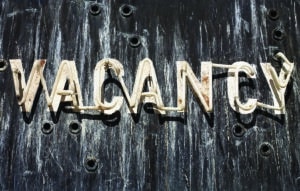
Steep downturns in business travel since March 2020 raise the specter of loan delinquencies and potential referral of hotel properties to workout departments.
The hotel industry suffered mightily during the COVID-19 pandemic. Government ordered lockdowns led to steep declines in global tourism, resulting in decreased occupancy and room rates, employee layoffs and hotel closures.
According to a recent industry analysis published by the American Hotel & Lodging Association, net job loss in the hotel industry is expected to approach 500,000, with hotels in California, Florida, Hawaii, Nevada and New York being hardest hit.
Facing this reality, banks and other lenders are carefully looking at hotel loans in their portfolios. Many hotel lenders have already modified loan terms to give hotel owners breathing room until pandemic restrictions are eased and the hospitality industry recovers. Nevertheless, it is inevitable that some lenders will end up transferring hotel loans to their workout departments.
During these times hotel lenders should heighten their focus on financial information from their borrowers, so they can anticipate problems before debt service defaults occur. Monthly profit and loss statements and balance sheets are good starting points, but diligent lenders will also monitor changes in hotel occupancy rates and average daily revenue per occupied room. Visits to hotel properties are also prudent, so lenders can see first-hand the condition of the properties and how they are maintained. Lenders should also make sure that required insurance policies are in place, with premiums paid.
Eye on Key Contracts
There are two important contractual relationships affecting most hotels that lenders need to be mindful of; namely, contracts with hotel operating companies, and contracts with hotel franchisors. Hotels are labor intensive businesses that provide numerous guest services. Therefore, experienced management teams and stable workforces are indispensable for hotel operations.
Also, many hotels are affiliated with national franchisors, allowing hotels to benefit from nationwide branding, advertising, reputation and web-based reservation systems. Loan workout strategies need to take these vital relationships into account.
Properly documented hotel loans require hotel operating firms to enter into agreements that allow lenders to retain existing management when lenders foreclose on hotels or accept deeds in lieu of foreclosure.
As to hotel franchisors, lenders usually require “comfort letters,” where franchisors acknowledge lenders’ mortgages on hotels and allow lenders to continue to operate hotels under the franchise agreements when lenders take control after borrower defaults. Comfort letters should also allow foreclosing lenders to transfer the franchises to new owners.
Modifications Avoid Last Resort
Lenders can address some financial problems with temporary accommodations such as payment deferrals, relief from financial covenants, extensions of maturity dates and forbearances from exercising lender rights and remedies. Lawyers should be engaged to document these accommodations. Well-drafted loan modification agreements require borrowers and guarantors to acknowledge unpaid loan balances, admit to events of default, confirm that loan documents remain in full force and effect, represent and warrant that borrowers’ and guarantors’ financial information is accurate, waive potential defenses and counterclaims against lenders, and pay lender’s legal fees and expenses related to the loan modification.
Finally, if the borrower defaults, loan modification agreements should allow lenders to revoke financial accommodations and exercise rights and remedies against borrowers, guarantors and hotel properties.
Foreclosures and deeds in lieu thereof are remedies of last resort for lenders. Hotel foreclosures are trickier than typical commercial real estate foreclosures. When lenders foreclose on office buildings or shopping centers, they can simply step into the shoes of their borrowers and collect rents from tenants, while hiring property managers to look after common areas until the lender sells the property.

Christopher Vaccaro
In contrast, hotels require management teams and full-time staffing to operate hotels and their associated amenities such as restaurants, function rooms, and recreational facilities. Hotel liquor licenses can be an indispensable part of the operation, but they generally cannot be transferred without government approval. If a hotel must close after a foreclosure, the losses to revenue and reputation can be irreplaceable.
Therefore, before taking control of distressed hotels, lenders need a team of managers and employees ready to quickly take over hotel operations and maintain services post-foreclosure. Sometimes the existing management team will suffice, but lenders must determine whether existing management is part of the problem that led to the hotel’s financial difficulties in the first place. If current management is unacceptable, lenders must be prepared to act swiftly to install new hotel operators.
The best strategy for hotel lenders is to anticipate problems, so they are the first to know when their borrowers encounter financial difficulties. Lenders who are proactive, instead of reactive, in identifying and addressing these problems are better prepared to minimize losses.
Christopher R. Vaccaro, Esq. is a partner at Dalton & Finegold, L.L.P. in Andover. His email address is cvaccaro@dfllp.com.





